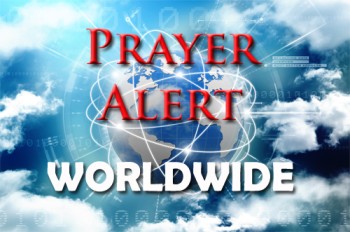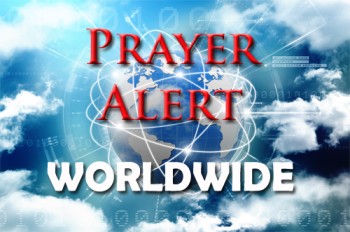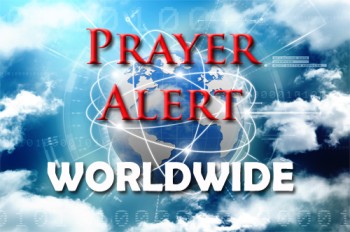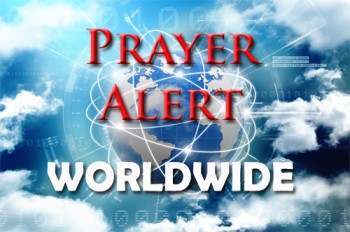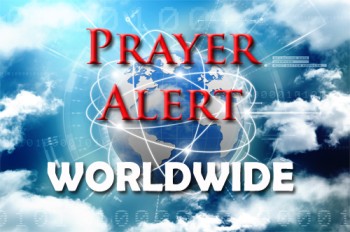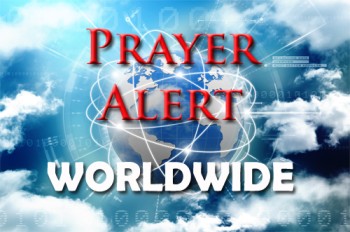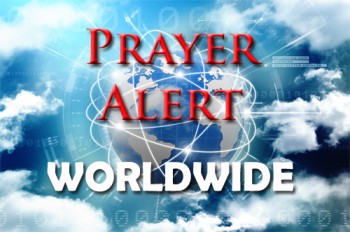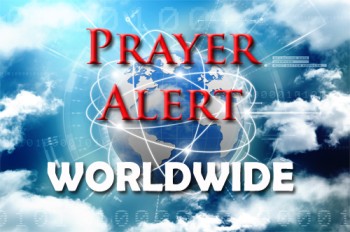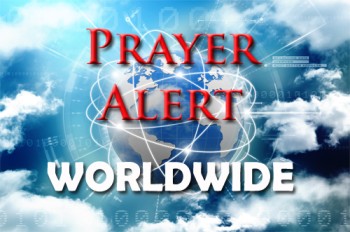Displaying items by tag: Asia
ASEAN: China’s shift towards green technology may inspire others
The strengthened commitment by China to cutting emissions and expanding renewable energy production may well accelerate Southeast Asia’s transition to a low-carbon economy. Analysts note that, as one of ASEAN’s key investors and trading partners in clean technology, China’s policies could encourage member states to attract more green investment while pursuing economic growth. Xi Jinping’s new climate targets include reducing greenhouse gas emissions by up to 10 percent from peak levels by 2035, expanding wind and solar capacity to 3,600 gigawatts, and increasing nonfossil fuels to over 30 percent of total energy use. Experts say these goals will boost affordable renewable technologies (eg solar panels, wind turbines, and batteries) across ASEAN, fostering energy security and resilience. China’s $2.7 billion clean-energy investment and $4.3 billion trade with ASEAN could inspire other members to align with the global shift toward sustainable development and climate responsibility.
Malaysia: hacking device easily available on internet
In Malaysia, a pocket-sized multipurpose hacking device capable of reading and emulating credit cards, cloning simple RFID tags, and recording older car key fob codes is being sold openly on popular e-commerce platforms. Marketed variously as a novelty gadget, handheld gaming device, or robotic kit, prices range from £26 to £300; units are sourced locally and from overseas. Short videos show the tool opening hotel doors and mimicking access credentials, raising alarms about theft, fraud, and privacy breaches. Experts say it cannot copy modern rolling codes used in many new cars, but when paired with custom firmware or signal analysers it could probe vulnerable legacy systems. Researchers and academics stress legitimate uses for hobbyists and security testing while urging sensible regulation: clearer labelling, age verification, user guidance, and targeted laws that criminalise illegal use rather than impose blanket bans.
Gaza: Hamas likely to reject Trump’s peace plan
A senior Hamas leader has said the group is likely to reject Donald Trump’s peace plan for Gaza, arguing it favours Israel while ignoring Palestinian concerns. The plan requires Hamas to disarm, surrender its weapons, and release all hostages at once - conditions the group deems unacceptable. It also proposes an International Stabilisation Force, which Hamas views as a foreign occupation. While Benjamin Netanyahu publicly accepted the plan, he has already contradicted key provisions, insisting Israel must retain a military presence in Gaza and pledging to resist a Palestinian state. Palestinians in Gaza expressed desperate support for the proposal - not out of agreement with its terms, but in hopes of ending war, devastation, and famine. Critics warn that rejection could allow Israel to intensify its campaign with international backing. More than 66,000 deaths have been reported in Gaza since October 2023.
Iran: offering hope to young people
Generation of Hope, a SAT-7 PARS youth programme, has returned for its second season with a mission to uplift and support young people in Iran and beyond. The show, hosted by 16-year-old Ilya in London and by Hanieh and Nina in Türkiye, provides a platform for teenagers and young adults to explore vital issues such as identity, mental health, self-harm, and friendship. During the June war between Iran and Israel, the programme shifted to a more prayerful tone, reflecting the anxieties of viewers and offering a safe space for expression. Now it continues to blend thoughtful conversations with light-hearted games, aiming to bring both joy and encouragement. For Ilya, who left Iran due to persecution but found faith in the UK, hosting is a powerful way to share Christ’s hope. His own journey was inspired by his mother’s transformation through faith. He says, ‘People are hopeless; they don’t know what to do. We try to encourage them to hold onto faith, and to the hope that God will help Iran.’
Afghanistan: Taliban shut down all communication networks
Afghanistan has entered near-total isolation after the Taliban government ordered a nationwide communications shutdown, drastically reducing connectivity to less than one percent of normal levels. The move follows weeks of restrictions on fibre optic networks, which officials justified as measures to prevent ‘vice’. Internet watchdogs described the blackout as ‘comprehensive’, warning of severe consequences for daily life, including banking, trade, and basic communication. Journalists reported losing contact with Kabul soon after the order was enacted. Provincial spokesmen confirmed that fibre optic service had already been banned in several northern and southern provinces earlier this month. While the Taliban had previously highlighted the 9,350-kilometre fibre network as a tool for economic development, the restrictions now threaten to deepen Afghanistan’s isolation and hinder essential services. Since retaking power in 2021, the Taliban have increasingly enforced sweeping limitations in line with their strict interpretation of Islamic law, leaving citizens with few avenues for connection to the outside world.
Indonesia: president defends free meals programme despite food poisoning cases
Indonesia’s president, Prabowo Subianto, has defended his ambitious free meals programme after thousands of cases of food poisoning raised public concern. Launched in January, the initiative provides meals for children and pregnant women; it has already reached 30 million, with a target of 83 million by year’s end. While 6,000 cases of poisoning have been recorded in 70 separate incidents - two-thirds since August - Prabowo pointed out that these represented only 0.00017 percent of all meals served. He acknowledged shortcomings, but stressed the programme’s benefits in reducing childhood stunting, improving nutrition, and creating jobs for local farmers and fishermen. He has now ordered new safety measures, including rapid testing equipment, sterilisers, water filters, and CCTV monitoring for kitchens. The National Nutrition Agency has already shut down noncompliant facilities. Despite the programme’s promise, critics question its fiscal sustainability, as next year’s budget is projected to triple.
Indonesia: a tiny island files climate lawsuit against cement firm
Recent protests in Indonesia over economic hardship have coincided with a landmark climate lawsuit filed by four residents of Pulau Pari, a tiny island only three metres above sea level which has already lost 11% of its land. Backed by international organisations, the plaintiffs are suing Swiss cement giant Holcim in a Swiss court, demanding proportional compensation, urgent emission cuts of 43% by 2030, and support for climate adaptation. Pulau Pari’s homes, fishing livelihoods, and freshwater supplies are being threatened by rising seas and saltwater intrusion, with projections suggesting the island could largely disappear by 2050. The case is historic: it seeks to hold a major corporation legally accountable in its own country for climate damages, echoing the International Court of Justice’s call for ‘full reparation’ for climate victims. It highlights the severe inequity facing low-emission coastal communities like Bangladesh. What lies ahead is a whole new discussion, but this case has surely created a path where victims are not defenceless and corporate giants are not untouchable.
Taiwan / China: super typhoon causes widespread devastation
On 24 September Typhoon Ragasa, the strongest tropical cyclone globally this year, slammed into Yangjiang, southern China, after killing 17 people in Taiwan and battering Hong Kong with destructive winds and torrential rain. The storm, which reached Category 5 strength with winds over 260 kph before weakening, inundated Hong Kong’s coastal areas, submerging roads and buildings. China’s authorities ordered the evacuation of over two million residents across Guangdong province, and dispatched tens of thousands of tents, folding beds, lighting equipment and other rescue supplies. While Hong Kong kept its stock market open as a sign of infrastructure resilience, authorities warned of continued flooding risks. Experts link Ragasa’s ferocity to climate change and predict stronger typhoons ahead, highlighting the need for urgent climate action and preparedness across vulnerable coastal regions as global temperatures and sea levels rise.
Nepal: the challenges facing new PM
New prime minister Sushila Karki, a former chief justice known for her uncompromising stance against corruption, faces an immense challenge just weeks after taking office. Chosen after huge protests which toppled her predecessor KP Sharma Oli, she has six months to deliver elections and satisfy demands from Nepal’s energised Gen Z movement. Protesters are urging her to arrest senior leaders accused of graft, purge politically connected bureaucrats, and investigate the 74 protest-related deaths. Their support remains conditional, with leaders such as Sudan Gurung warning they will oust her if progress stalls. Karki has pledged an anti-corruption committee and a panel to examine the violence. Yet entrenched party power - especially Oli’s influence as head of the Communist Party - poses obstacles. With youth unemployment above 20% and decades of political instability, Nepal stands at a pivotal moment reminiscent of the 2008 Maoist uprising. Karki must balance swift action and careful diplomacy to prevent renewed turmoil, while proving that democratic reform is possible.
Israel has committed genocide, says UN inquiry
A UN commission of inquiry has concluded there are reasonable grounds to believe Israel has committed genocide against Palestinians in Gaza since the 2023 war with Hamas began. The 72-page report cites four of the five acts defined under the 1948 Genocide Convention - killing, causing serious harm, deliberately inflicting life-destroying conditions, and preventing births - along with statements by Israeli leaders, as evidence of genocidal intent. It highlights widespread civilian deaths, collapsed infrastructure, repeated displacement, and a UN-declared famine. Commission chair Navi Pillay said speeches by Benjamin Netanyahu and other officials, combined with Israel’s military conduct, support the inference of intent to destroy those living in Gaza in whole or part. The commission also warned other nations of their legal duty to prevent and punish genocide, noting potential complicity if they fail to act. Israel’s government rejected the findings as false and biased, arguing that its operations are targeting Hamas in self-defence and comply with international law. Meanwhile, the long-awaited offensive by the Israeli military against Gaza City has begun: see
